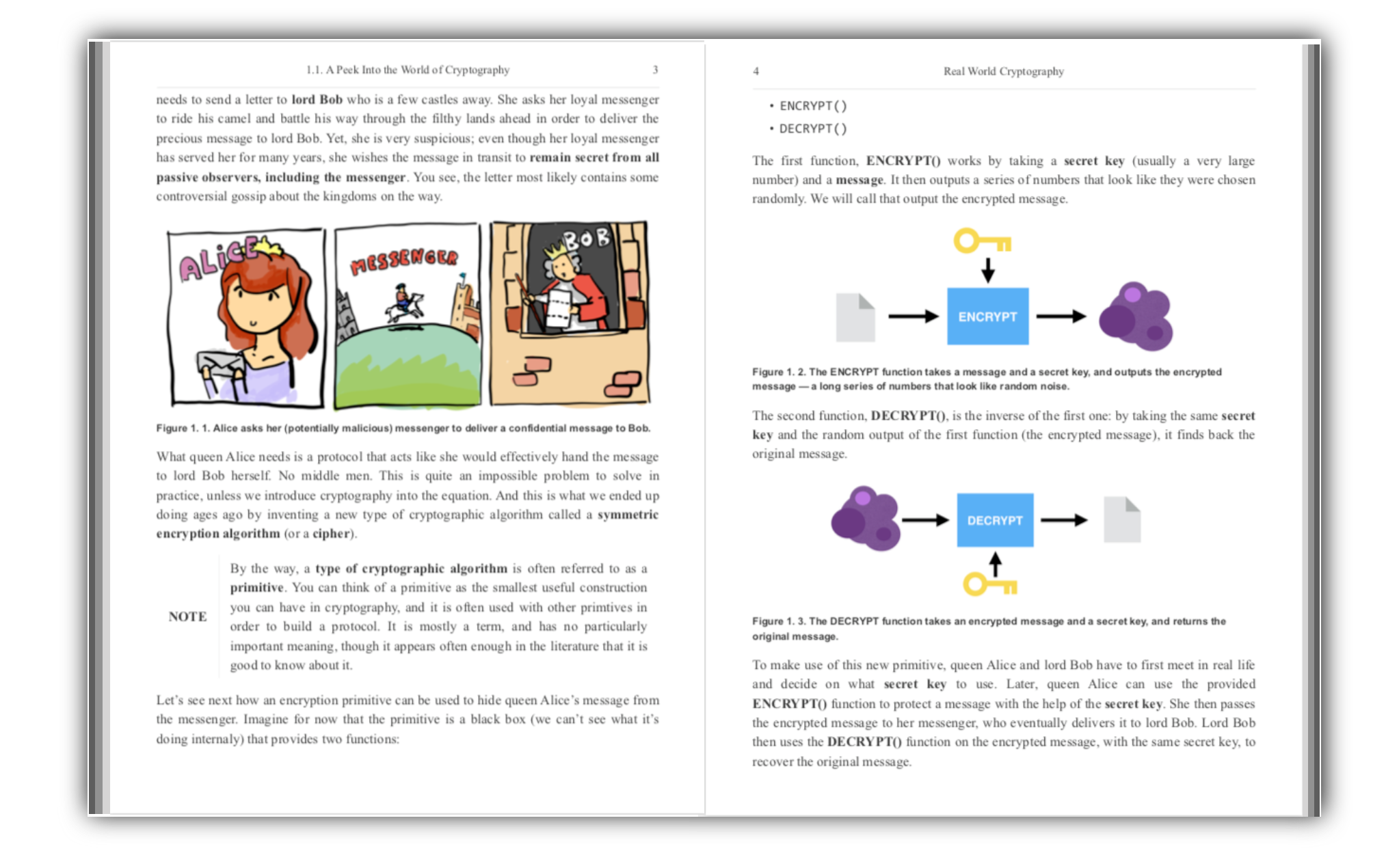Want to implement something fun today? posted September 2018
You should try to implement Disco!
Disco is a specification that once implemented allows you to encrypt sessions (like TLS) and encrypt, authenticate, hash, generate random numbers, derive keys, etc. (like a cryptographic library). All of that usually only needs less than a thousand lines of code.
Here's how you can do it:
1. Strobe. The first step is to find a Strobe implementation (Disco uses Strobe for all the symmetric crypto). Reference implementations of Strobe exist in C and Python, unofficial ones exist in Golang (from yours truly) and in Rust (from Michael Rosenberg). but if you're dealing with another language, you'll have to implement the Strobe specification first!
2. Noise. Read the "How to Read This Document and Implement Disco" section of the Disco specification. What it tells you is to implement the Noise specification but to ignore its SymmetricState and CipherState sections. (You can also ignore any symmetric crypto in there.) You can find Noise libraries in any languages, but implementing it yourself is usually pretty straight forward (here you only really have to implement the HandshakeState).
3. Disco. Once you have that (which should take 500 LOC top), implement the SymmetricState specified by Disco.
4. Tada!
PS: if you want to write one in python, that'd be really great! You can take a look at the already existing implementations here.


Comments
leave a comment...